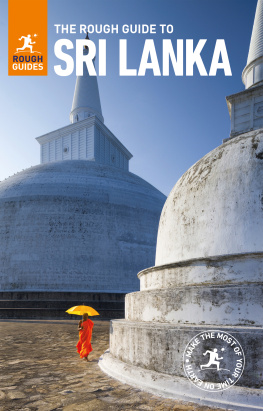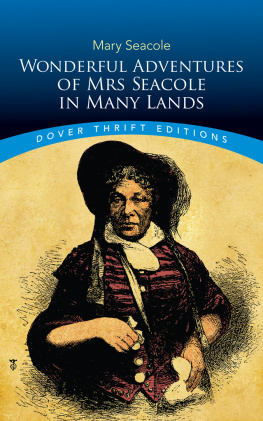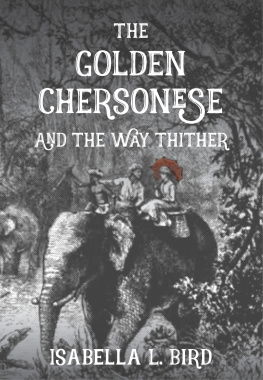Its Origin, Progress and Decline In America.
BY HENRY REED STILES, M.D.,
AUTHOR OF HISTORY OF BROOKLYN, HISTORY OF WINDSOR, CT., ETC.
"I find by all historians, whether ancient or modern, whom I consulted in searching for this work, the fact well recorded, and established beyond all controversy, that the Yankee nation are a set of talking, guessing, swapping and bundling sons of women."
Grant Thorburn's Notes on Virginia.
ALBANY:
KNICKERBOCKER PUBLISHING COMPANY.
1871.
Entered according to Act of Congress, in the year 1871,
BY HENRY R. STILES,
In the office of the Librarian of Congress, at Washington.
TO MY ESTEEMED FRIEND,
DEACON JABEZ H. HAYDEN,
OF WINDSOR LOCKS, CONNECTICUT,
Whose jealous love of his native state, led him, in defense
of her good fame, to make some strictures
upon a statement relative to bundling, in my
History and Genealogies of Ancient Windsor,
Conn., which strictures (made and
taken in the kindest spirit of personal
friendship) set me upon
the further investigation
of this interesting
subject.
This Essay,
The result of that investigation, and the justification (as I claim) of my original statement,
is
MOST RESPECTFULLY
DEDICATED
BY THE
AUTHOR
PREFATORY.
In the History and Genealogies of Ancient Windsor, Conn., published in 1859, speaking of the influence of the old French wars upon the religious, moral and social life of New England, I used this language:
"Then came war, and young New England brought from the long Canadian campaigns, stores of loose camp vices and recklessness, which soon flooded the land with immorality and infidelity. The church was neglected, drunkenness fearfully increased, and social life was sadly corrupted. Bundlingthat ridiculous and pernicious custom which prevailed among the young to a degree which we can scarcely creditsapped the fountain of morality and tarnished the escutcheons of thousands of families."
Hereupon there came a buzzing around my ears. Divers good sons of Connecticut winced under the soft impeachment of having a bundling ancestry, and intimated that my sketch of society in the olden times was somewhat overdrawn. In 1861, an esteemed antiquarian friend in Connecticut wrote me as follows: "Some of your friends feel that, in your History of Windsor, you showed too much inclination to malign, or at least ridicule, Connecticut institutions, though I think none of them accuse you of malice in the matter, and they fear that this subject of bundling cannot be ventilated without endangering the fair fame of old Connecticut."
Upon that hint I speak. Although born in the city of New York, I am the son of Connecticut parents, and proud to trace my descent through six generations of honest, hard-working, God-fearing Connecticut yeomanry. By the mere accident of birth I cannot feel myself absolved from that allegiance to the Wooden Nutmeg State, which is imposed upon me by the ties of ancestry, of relationship, of youthful associations, and last, not least, by the deep interest which I have taken in the history of one of its eldest-born towns. I am, indeed, at this day, to all intents and purposes, as wholly and truly a Connecticut man as if born within her borders; and as proud of her past, as hopeful of her future, and as jealous of her reputation as any one could desire. I trust, therefore, that I may be allowed to disclaim any "inclination to malign, or at least ridicule Connecticut institutions," a task which, in my case, would savor of ingratitude, and which I should consider unworthy of my humble pen.
I cannot but think, also, that those who have found, or think that they have found, an inimical design in any pleasantries in which I may have indulged while describing the customs and manners of by-gone dayshave betrayed a thin-skinnedness, and an ignorance of the true glory of Connecticut history, when they imagine that her fair fame can be seriously tarnished by the fly-specks of certain customsat no time without their vigorous opponentsand long since rendered obsolete by the march of improvement.
The fun of the thing, however, is, that the sentence which has thus called forth the animadversions of the critics, will be found, with its context, on closer examination, to have applied to the New England Colonies, and not to Connecticut alone! In their haste to vindicate the land of steady habits, they seem to have assumed more than their share of the reproach involved in my simple historical statement.
As for myself, I am no believer in the theory that the objectionable portions of history should be kept in the background, and that only the bright side should be turned towards the world. If, as one has happily said, "history is experience teaching by example," we most surely need to have both sides fairly presented to us before we can properly extract therefrom the lesson of good or of evil which is therein taught. It is unnecessary to pursue the argument further. Suffice it to say, that perfection is as little to be expected in the history of a state or a community, as in the life of an individual. As to our ancestors, we must take them as history shows them to us"men of like passions with ourselves," and "in all respects tempted as we are," yet neither worse, nor, again, very much purer or better than ourselves.
In this spirit I have undertaken to trace, in the following pages, the origin, progress and decline of the custom of bundling in America, together with such facts as clearly prove that it was not confined to this continent, but prevalent in various countries of the world.
"HONI SOIT QUI MAL Y PENSE."
H. R. S.
BUNDLING.
BUNDLING. "A man and a woman lying on the same bed with their clothes on; an expedient practiced in America on a scarcity of beds, where, on such occasions, husbands and parents frequently permitted travellers to bundle with their wives and daughters."Grose, Dictionary of the Vulgar Tongue.
BUNDLE, v.i. "To sleep on the same bed without undressing; applied to the custom of a man and woman, especially lovers, thus sleeping."Webster, 1864.
BUNDLE, v.n. "To sleep together with the clothes on."Worcester, 1864.
Bundling, as may be seen from the above quoted definitions, was practiced in two forms: first, between strangers, as a simple domestic make-shift arrangement, often arising from the necessities of a new country, and by no means peculiar to America; and, secondly, between lovers, who shared the same couch, with the mutual understanding that innocent endearments should not be exceeded. It was, however, in either case, a custom of convenience.
We may notice, in this connection, that it is very common, even at the present day, in New England, to speak of one as having "bundled in with his clothes on," if he goes to bed without undressing; as, for instance, if he came home drunk, or feeling slightly ill, lay down in the daytime, or in a cold night found the blankets too scanty.
The point which first claims our attention in the discussion of this custom, is its probable origin, and its antiquity in
THE BRITISH ISLES.
For, though British travelers have uniformly endeavored to fix the odium of this custom upon us their transatlantic cousins, as being peculiarly "An American institution," it is, nevertheless, an indisputable fact that bundling has for centuries flourished within their own kingdom. For what else, in fact, was that universal custom of promiscuous sleeping together which prevailed among the ancient Britons at the time of the Roman conquest, and which led Csar to consider them as polyandrous polygamists, and other ancient writers to give them an unenviable character for morality? Bundling, of course! in its rudest aboriginal form.






